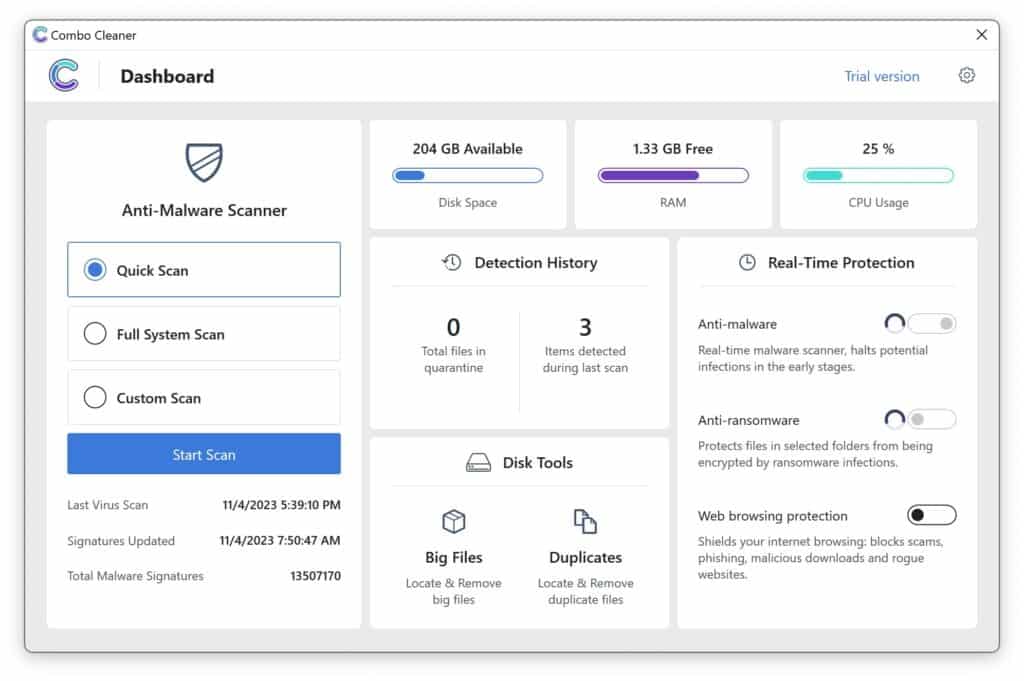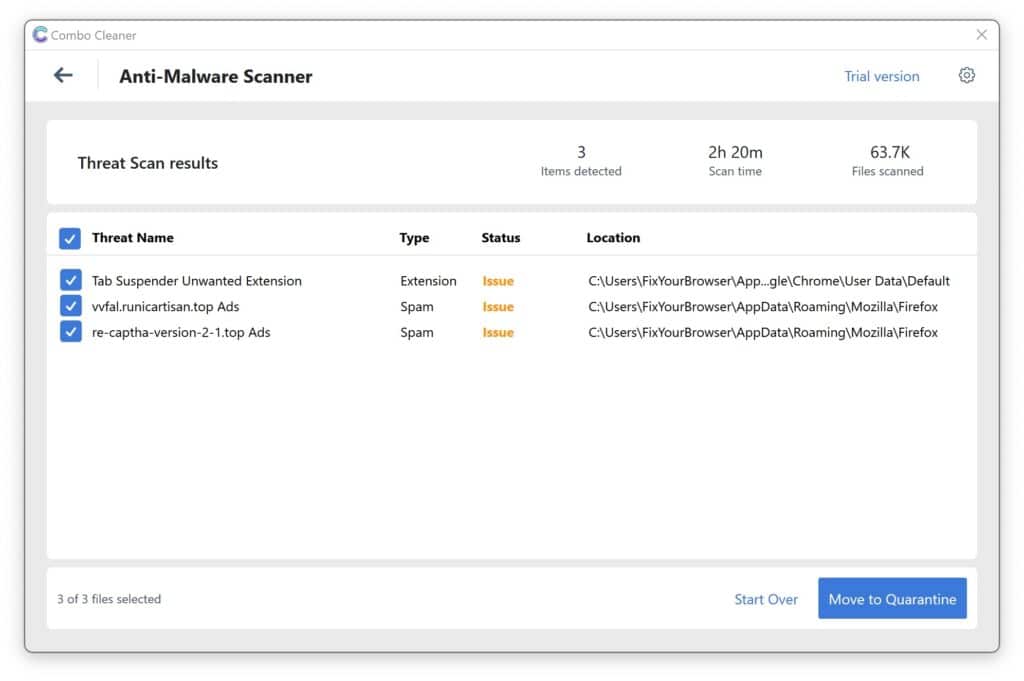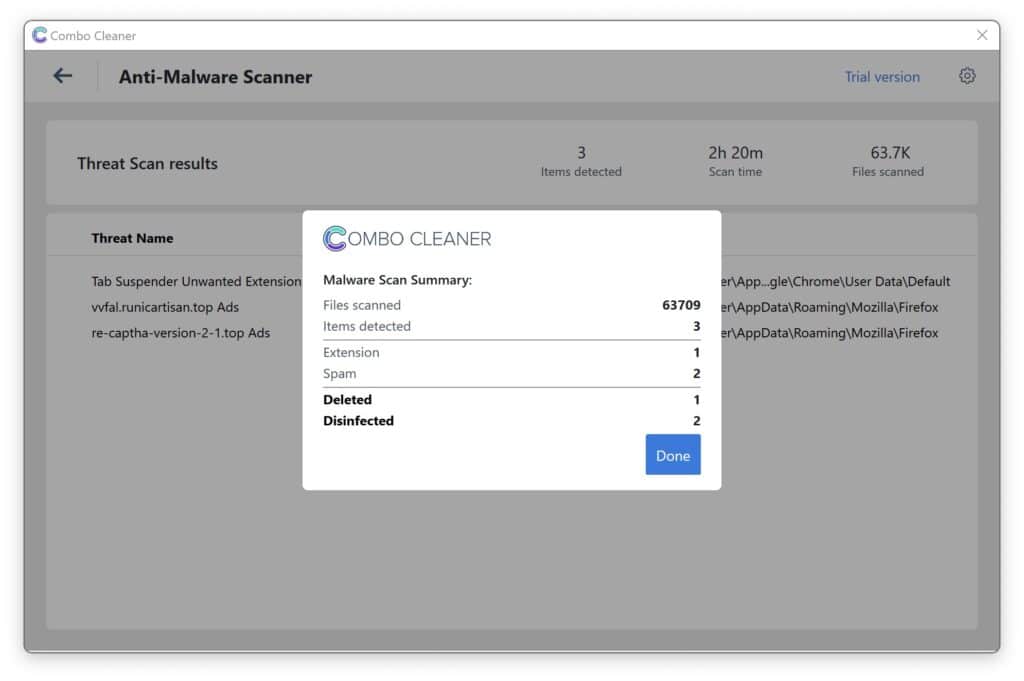I will explain how to eliminate annoying pop-up ads from Re-captha-version-2-7.top on your computer or phone device. First, let’s understand what Re-captha-version-2-7.top does.
The pop-ups that show up from Re-captha-version-2-7.top aren’t genuine. They trick you into agreeing to get notifications, but these are just annoying ads that keep popping up.
If you see these Re-captha-version-2-7.top ads on your Windows or Mac computer or Android or iPhone, you accidentally said “yes” to notifications from this sneaky website. Usually, notifications are helpful for web browsers, but Re-captha-version-2-7.top misuses this feature. They show you a fake message that makes you click ‘Allow,’ and get these unwanted ads.
Keep reading below, and I’ll tell you more about how this fake website works and tricks people.

Here’s what you need to know about those annoying fake messages from a site called Re-captha-version-2-7.top. These messages are sent by bad guys who want to trick you into clicking on them, and doing so can cause some real problems.
One thing they try to do is get you to visit fake websites that look real. These sites might steal your personal information or even put harmful software on your device without you knowing.
Another trick they use is to make you download lousy software. This could be adware or spyware, which watches what you do on your device and invades your privacy.
Sometimes, clicking on these fake messages makes money for these bad guys. They might trick you into clicking on ads or even signing up for services that cost money or are harmful. So, it’s crucial to be careful and not click on these fake messages.
Here is a threat summary of Re-captha-version-2-7.top:
| Threat domain name: | Re-captha-version-2-7.top |
| IP address: |
172.67.142.14 |
| Type of threat: | Pop-up ads, Adware, Push Notification |
| Threat symptoms: |
|
| Threat distribution: | Fake surveys, dating websites, tech support scam, drive-by malware download. |
| How to remove: | Remove the push notification settings from your browser. Read below how to do it. |
Re-captha-version-2-7.top removal guide
To stop receiving notifications from Re-captha-version-2-7.top and prevent unwanted advertisements in your browser, you need to revoke the permission granted to the website. Please follow the instructions based on the browser you are using as your default. These steps will guide you on how to remove the permission for Re-captha-version-2-7.top in your browser settings.
For Google Chrome:
- Open Google Chrome and click the three-dot menu icon in the top-right corner.
- From the drop-down menu, select “Settings.”
- On the left, click the “Privacy and Security” section and “Site Settings.”
- Locate and click on “Notifications.”
- Look for Re-captha-version-2-7.top in the list of sites and click on the three-dot menu icon next to it.
- Choose “Remove” or “Block” to revoke the permission for Re-captha-version-2-7.top.
Here are the steps in more detail:
First, you open the Google Chrome browser. Next, click the menu button. In the menu, click on “Settings.”

Click on the “Privacy and Security” settings.

Next, click on “Site settings.”

Click on “Notifications” to open the website notification settings.

In the “allowed to send notifications” section, find the Re-captha-version-2-7.top domain. On the right, click the “More actions” button.

For Microsoft Edge:
- Open the Microsoft Edge browser.
- Click on the three-dot menu icon in the top-right corner.
- From the drop-down menu, select “Settings.”
- In the left sidebar, click on “Cookies and site permissions.”
- Under the “Permissions” section, click on “Notifications.”
- Find Re-captha-version-2-7.top in the list of websites.
- Click on the “More actions” (three-dot) menu icon next to it.
- Select “Remove” to revoke the permission for Re-captha-version-2-7.top.
Here are the steps in more detail:
First, you open the Microsoft Edge browser. Next, click the menu button. In the menu, click on “Settings.”

Click on the “Cookies and site permissions” settings.

Next, click “Notifications” in the “All permissions” section.

In the “Allow” section, find the Re-captha-version-2-7.top domain. On the right, click the “More actions” button.

In the “more actions” menu, click “Remove” to remove the permission for Re-captha-version-2-7.top to send notifications.

For Mozilla Firefox:
- Open Mozilla Firefox and click the three-bar menu icon in the top-right corner.
- From the menu, select “Options.”
- In the left sidebar, click on “Privacy & Security.”
- Scroll down to the “Permissions” section and click on “Settings” next to “Notifications.”
- Find Re-captha-version-2-7.top in the list of websites and click the “Remove Website” button.
Here are the steps in more detail:
First, you open the Firefox browser. Next, click the menu button. In the menu, click on “Settings.”

Click on the “Privacy & Security” settings.

Next, click “Notifications” in the “Permissions” section.

In the “Notifications permissions,” find the Re-captha-version-2-7.top domain and click on it. You can change its status to “block” or remove the website from the permissions by clicking the “Remove website” button. If you do not want to use notifications at all, click the “remove all websites” button and check the “block new requests asking to allow notifications.” Confirm all changes by clicking the “Save changes” button.

For Safari (macOS):
- Open Safari and click on “Safari” in the top menu.
- Select “Preferences” from the drop-down menu.
- Go to the “Websites” tab.
- In the left sidebar, click on “Notifications.”
- Locate Re-captha-version-2-7.top in the list and select it.
- Click on the “Deny” or “Remove” button to remove the permission for Re-captha-version-2-7.top.
Here are the steps in more detail:
First, open the Safari browser. Next, click the menu button in the top right corner and click “Settings” in the menu.

Click on the “Websites” tab.

In the menu, click on “Notifications”.

Click on the Re-captha-version-2-7.top domain in the notification settings. Change its status to “deny” to stop receiving notifications. If you do want to use notifications at all, click on the “remove” button and uncheck “allow websites to ask for permission to send notifications”.

Clean your PC with Combo Cleaner
Combo Cleaner is a cleaning and antivirus program for Mac, PC, and Android devices. It is equipped with features to protect devices from various types of malware, including spyware, trojans, ransomware, and adware. The software includes tools for on-demand scans to remove and prevent malware, adware, and ransomware infections. It also offers features like a disk cleaner, big files finder (free), duplicate files finder (free), privacy scanner, and application uninstaller.
Follow the installation instructions to install the application on your device. Open Combo Cleaner after installation.
- Click the "Start scan" button to initiate a malware removal scan.

- Wait for Combo Cleaner to detect malware threats on your computer.
- When the Scan is finished, Combo Cleaner will show the found malware.
- Click "Move to Quarantine" to move the found malware to quarantine, where it can't harm your computer anymore.

- A malware scan summary is shown to inform you about all threats found.
- Click "Done" to close the scan.

Use Combo Cleaner regularly to keep your device clean and protected. Combo Cleaner will remain active on your computer to protect your computer from future threats that try to attack your computer. If you have any questions or issues, Combo Cleaner offers a dedicated support team available 24/7.
Remove Re-captha-version-2-7.top with AdwCleaner for free
AdwCleaner, developed by Malwarebytes, is a utility software designed to tackle issues like adware and unwanted software installations on your computer, often caused by downloading free software or visiting questionable websites. This user-friendly program utilizes a scanner to examine your device for potentially harmful codes, such as unwanted programs (PUPs) and viruses. Its primary focus is preventing the generation of pop-up ads and stopping the installation of malicious toolbars and extensions, aiming to provide a hassle-free experience while using your computer.
When AdwCleaner identifies these threats during its quick scan, it promptly alerts you. Swiftly detecting potential security compromises on your PC empowers you to take control and securely resolve these issues, safeguarding your exposed data.
AdwCleaner goes beyond computer security by assisting in the removal of unauthorized browser extensions that have been installed without your knowledge or consent. It restores your browser settings to their default state, ensuring an optimal and secure browsing experience whenever you visit websites.
AdwCleaner offers users an instant and safe solution to eliminate browser hijackers, adware bugs, and unwanted programs from malicious online sources. AdwCleaner can enhance your computer’s performance, strengthen safety measures, and optimize the user experience.
To begin using AdwCleaner, download the program and run the file. There’s no need for installation. Once launched, click “Scan now” to start the scanning process.

AdwCleaner will now download adware detection updates. These detection updates ensure the latest adware scanning capabilities. Afterward, AdwCleaner will proceed with a thorough detection scan on your computer.

After completing the detection process, you will see the option “Quarantine” Click on it to initiate the Re-captha-version-2-7.top removal process. To confirm, click on “Continue.”

Please wait while AdwCleaner completes the cleanup process. This should be a quick operation. Once AdwCleaner finishes, click on “View log file” to review the details of the detections and cleanup procedures.

How to protect your browser against Re-captha-version-2-7.top pop-ups?
My first recommendation is to exercise caution when browsing unfamiliar websites with content that sounds too good to be accurate, or that has unclear origins/citations. The next step suggested is ensuring regular updates for your web browser software as these frequently add improved security features and patches – it’s crucial to stay ahead of digital attackers.
Enabling built-in security features such as pop-up blockers or phishing protection settings available within browsers could be a helpful defense mechanism against online fraudsters’ malicious activity. When it comes down to notification permits – exercising discretion while allowing access privileges only for reputable sources &, if possible, avoiding suspicious-looking sites entirely may significantly reduce risks associated with granting permission.
It’s essential to monitor website permissions granted in browser settings and scrutinize them periodically to ensure trust and safety over time. Furthermore, investing in reliable anti-malware programs, updating them regularly & scanning devices at proper intervals – helps maintain the device’s security and our peace of mind from digital attacks.
Finally, educate yourself about emerging and prevalent phishing techniques in circulation frequently used by malicious sites – this basic knowledge is essential in identifying potential scams quickly.
By actively following the above preventive measures while browsing, we can effectively reduce threats posed by deceptive websites and safeguard ourselves from traditional online fraud.
Enjoy a clean and safer browsing experience. Thank you for reading!
